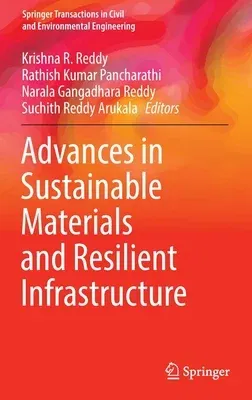The edited book comprises invited book chapter contributions from global
experts in the field of sustainable materials and resilient
infrastructure. The book covers the most critical and emerging topics
for creating sustainable solutions for the construction industry,
promoting the technologies and monitoring methods for resilient
infrastructure. It focuses on sustainable solutions and offers
techniques and methodologies to deliver high-quality end solutions in
civil engineering. In addition, the content provides knowledge-based
information for the readers to assess, monitor, measure, and practice
sustainability for resilient infrastructure. The contents of the volume
are a blend of academic research work and industrial case studies. It
covers the use of sustainable materials like Lime-Pozzolona Binders,
biopolymers, lignosulphonate, lightweight aggregates made from fly ash,
calcinated clay, paper ash, and limestone as amendments/ameliorators for
soil remediation, development of neo-construction materials and
composites for civil engineering applications. Design of innovative
pavements using alkali activation and pervious concrete for sustainable
infrastructure is also discussed. The chapters also highlight the role
of civil engineers in achieving UN Sustainable Development Goals,
promoting climate change design for urban landscapes, and modelling
building energy demand. This book is framed to address the principles
and practice from the corners of geoenvironment, sustainable
construction materials, low carbon materials, energy efficiency, and
waste management. It is a valuable reference for faculty, researchers,
field experts, scientists, and practicing engineers.

